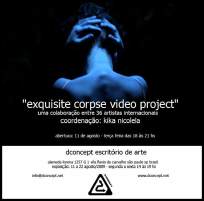| Shifting Perspectives | London
Shifting Perspectives >> Photographic exhibition
17th March – 28th March 2010 >> gallery@oxo >> Oxo Tower Wharf Bargehouse Street >> The Southbank London SE1 9PH >> Admission Free, Open daily 11am – 6pm
Photographers: Richard Bailey, Fiona Field, Aviv Yaron, Maria de Fatima Campos, Nadia Bettega and Shira Avni.
Photograph by Fiona Field
Fiona Field: I watch my daughter and her close friends forging their identities, aspiring to the same images of beauty, of love, of popularity as their typically developing peers. These photographs celebrate their emerging strong female sense of self.
Photograph by Richard Bailey
Richard Bailey: Having heard about her versatility as an actress Richard approached Sarah to collaborate with him in reconstructing Vermeer’s encounters with his sitters. Sarah’s grace, charm and character were perfect to emulate Vermeer’s elegant studies, but with a modern twist. Vermeer’s images with their soft and graceful tones, subtle shadows and careful light show how significant lighting is to a strong image. Some people say that a Vermeer work shouts in soft shadows. This description could easily be applied to Sarah, in that by carrying herself so well and by speaking so eloquently she is able to show ‘the public’ that people with Down’s syndrome are so much more than an outdated stereotype. By being herself she is making a very loud statement.
Photograph by Aviv Yaron
Aviv Yaron: Ophir’s way of being often questions the validity of my own frame of mind. More so, on many occasions it feels to me as though Ophir, effortlessly, holds the ingredients to a way of living I myself am in a struggle to attain. I believe my attempts to help Ophir integrate via conformism stem from my own fears – an image of ordinary life projected onto an imaginary future with a focus on disability. I lack the trust that her incredible ability to fully live the here-and-now and her emotional intelligence, are all that she would ever need in order to survive her adult world.
Our attempts to integrate our children’s differences into the cultural conventions of ‘normal’ life feels, at times, like masking over what should be considered as a healthier existence – in the case of Ophir, qualities she naturally has. This is possibly the challenge with parenting any child. However, with our children – as they cannot always pretend to be different to who they really are – the mirror we face is clearer. Gazing at it – and the mask becomes ours.
Photograph by Nadia Bettega.
Nadia Bettega: These portraits form a part of a wider collaborative project between photographer Nadia Bettega, the British Institute of Human Rights (BIHR) and their partner groups including Downs Syndrome Association (DSA). ‘Changing the face of Human Rights’ aims to show the ‘human’ face of human rights. A fully participatory project – it involved human rights activists, community groups and vulnerable and disadvantaged people to tell their own stories through compelling images. Around 60 groups and individuals – including human rights lawyers, public figures, artists, actors, women’s groups, travellers and gypsies, the BME community and homeless people – worked alongside Bettega to develop portraits and stories portraying what human rights mean to them.
Each person was asked to communicate their message through an object which represented human rights to them on a personal level. The project highlights concerns, celebrates things that are sometimes taken for granted and promotes the fundamental democratic message that human rights unite us all.
Video by Shira Avni
 Photograph by Maria de Fatima Campos.
Photograph by Maria de Fatima Campos.
Breastfeeding – breaking the taboo
This is part of a bigger project aiming to raise awareness of the importance of the health benefits of breastfeeding and breast milk for infants born with Down’s syndrome. The initial inspiration for this project came from my encounter with parents of children with Down syndrome during my PhD research study. The personal stories of the parents revealed that healthcare professionals gave them the impression that their infants would not be able to breastfeed.
Although breastfeeding is universally known to have many positive effects on the physical and emotional well being of both mother and infant, there is limited information about the types of support new parents may need. It is intended that this work will act as a catalyst to demystify breastfeeding of infants with Down syndrome and to make ‘visible’ what is usually hidden and, often, taboo. Dr Roja Sooben (Senior Lecturer) University of Hertfordshire, Hatfield.
 ‘Happy, happy, happy.’ Photograph by Javier Delgado Esteban.
‘Happy, happy, happy.’ Photograph by Javier Delgado Esteban.
Now entering its sixth year, the Shifting Perspectives team explores the photographic representation of people with Down’s syndrome, challenging attitudes and prejudices and examining alternative representations of both adults and children by highlighting their individuality. Their images show that each person is different – not merely because they have Down’s syndrome. Shifting Perspectives questions general views of what living with Down’s syndrome means to individuals, families and friends. It is fitting that the theme for this year’s Shifting Perspectives is individuality as the Down’s Syndrome Association celebrates its 40th anniversary. Forty years ago, people with Down’s syndrome were fighting for the basic rights – right to life, medical treatment, education and to be an accepted member of society.
GlaxoSmithKline one of their strongest partner recently renewing their support of Shifting Perspectives until 2013. This support will allow Shifting Perspectives to travel throughout the United Kingdom and travel globally giving more people the chance to see the individual, not just Down’s syndrome.





















Comments are closed.